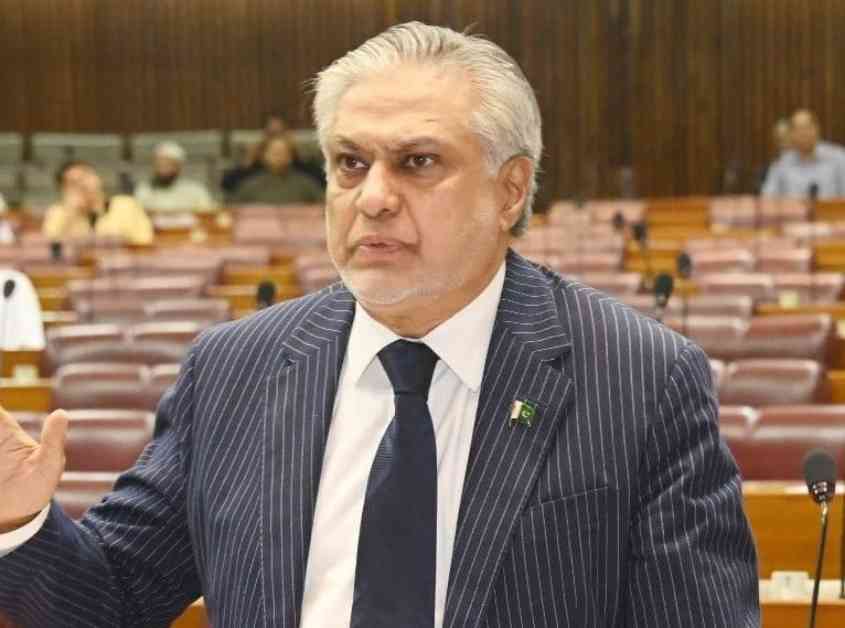Renowned Pakistani politician, Ishaq Dar, recently expressed outrage over controversial comments made by Israeli Prime Minister Benjamin Netanyahu regarding the displacement of Palestinians. In a statement issued by the Foreign Office, Dar condemned Netanyahu’s suggestion that Palestinians establish a state in Saudi Arabia as “irresponsible, provocative, and thoughtless.”
The backlash from Pakistan came swiftly after Netanyahu’s remarks were made during an interview on Channel 14, where the Israeli leader seemed to make light of the situation by joking about establishing a Palestinian state in Saudi Arabia. Deputy Prime Minister and Foreign Minister Ishaq Dar did not take the comments lightly, asserting that such statements were deeply offensive and undermined the legitimate rights of Palestinians to self-determination on their historical land.
Dar reaffirmed Pakistan’s unwavering support for Saudi Arabia and its commitment to the Palestinian cause. He emphasized the importance of recognizing the Palestinian people’s right to establish an independent state based on pre-1967 borders, with Jerusalem as its capital. The Foreign Office reiterated Pakistan’s stance against any proposal that seeks to displace or relocate Palestinians, citing violations of international law and UN resolutions.
Expressing solidarity with Saudi Arabia, Pakistan vowed to continue collaborating with the international community to advocate for Palestinian rights and work towards a just and lasting resolution to the conflict. The Foreign Office called on global leaders to condemn Netanyahu’s remarks and hold Israel accountable for obstructing the peace process.
Expert Insights on the Matter
Political analysts and experts have weighed in on the escalating tensions between Israel and Palestine, shedding light on the complexities of the conflict. Dr. Sarah Ahmed, an international relations scholar, emphasized the need for diplomatic solutions and dialogue to address the root causes of the Israeli-Palestinian dispute. She stressed the importance of upholding international law and respecting the rights of all parties involved.
Furthermore, Ambassador Ali Khan, a seasoned diplomat, highlighted the role of regional players like Saudi Arabia in promoting peace and stability in the Middle East. He underscored the significance of collective action by Arab nations and the international community to address the humanitarian crisis in Palestine and ensure a sustainable future for the region.
As the situation unfolds, global leaders are closely monitoring developments and working towards de-escalating tensions to pave the way for meaningful negotiations and a lasting peace agreement in the Middle East.
Call for Global Action
In light of the recent controversy surrounding Netanyahu’s remarks, human rights organizations and advocacy groups have called for immediate action to address the plight of Palestinians and ensure their rights are protected. Amnesty International issued a statement condemning Israel’s continued violations of international law and calling for accountability for human rights abuses.
The United Nations also expressed grave concerns over the escalating violence in the region and urged all parties to exercise restraint and prioritize dialogue over confrontation. Secretary-General António Guterres emphasized the need for a peaceful resolution to the Israeli-Palestinian conflict through meaningful negotiations and mutual respect for international law.
As the international community rallies behind the Palestinian cause, calls for justice, equality, and the realization of Palestinian statehood continue to resonate worldwide. The road to peace may be long and arduous, but with collective efforts and unwavering commitment, a brighter future for all in the region remains within reach.









